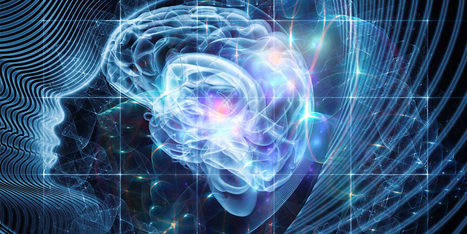Let’s start with the definitions of each:
Imagination is considered the faculty or action of forming new ideas, or images or concepts of external objects not present to the senses.
Knowledge is about facts, information, and the skills acquired by a person through experience or education; the theoretical or practical understanding of a subject.
An imaginative student would be free to take risks, be a leader, and state opinions as opposed to stating the correct answer. An imaginative teacher would be free to take risks, be a leader, and be adaptable to the changing needs of their students.
Our imagination changes. It is organic. It grows as knowledge grows. Knowledge feeds the imagination which spurs us on to new knowledge. Ultimately this is the cycle of discovery and of learning we strive for in education.
Is Imagination More Important Than Knowledge?
In a recent TED conversation, readers chimed in with the following insights:
“I think imagination DRIVES knowledge acquisition. If you are really passionate about a possibility you imagine (whether it’s a better education system or a revolutionary scientific theory), you will seek out the knowledge needed to test it or to turn your vision to reality.” (Ayesha Ratnayake)
“Creativity is the product of imagination. So, both of them need knowledge to work and grow up together. Knowledge is static and creativity is changing, change is needed for new things to happen but to have change, there must first be something to change; knowledge.” (Thomas Z.)
“Both are necessary. Imagination drives inquiry and inquiry eventually leads to knowledge. With additional knowledge new levels of imagination become possible.” (Harald Jezek)
Learning more / En savoir plus / Mehr erfahren:
http://www.scoop.it/t/21st-century-learning-and-teaching/?tag=Imagination%3DCreativity%21



 Your new post is loading...
Your new post is loading...










Imagination is considered the faculty or action of forming new ideas, or images or concepts of external objects not present to the senses.
Knowledge is about facts, information, and the skills acquired by a person through experience or education; the theoretical or practical understanding of a subject.
An imaginative student would be free to take risks, be a leader, and state opinions as opposed to stating the correct answer. An imaginative teacher would be free to take risks, be a leader, and be adaptable to the changing needs of their students.
Our imagination changes. It is organic. It grows as knowledge grows. Knowledge feeds the imagination which spurs us on to new knowledge. Ultimately this is the cycle of discovery and of learning we strive for in education.
Is Imagination More Important Than Knowledge?
In a recent TED conversation, readers chimed in with the following insights:
“I think imagination DRIVES knowledge acquisition. If you are really passionate about a possibility you imagine (whether it’s a better education system or a revolutionary scientific theory), you will seek out the knowledge needed to test it or to turn your vision to reality.” (Ayesha Ratnayake)
“Creativity is the product of imagination. So, both of them need knowledge to work and grow up together. Knowledge is static and creativity is changing, change is needed for new things to happen but to have change, there must first be something to change; knowledge.” (Thomas Z.)
“Both are necessary. Imagination drives inquiry and inquiry eventually leads to knowledge. With additional knowledge new levels of imagination become possible.” (Harald Jezek)
Learning more / En savoir plus / Mehr erfahren:
http://www.scoop.it/t/21st-century-learning-and-teaching/?tag=Imagination%3DCreativity%21